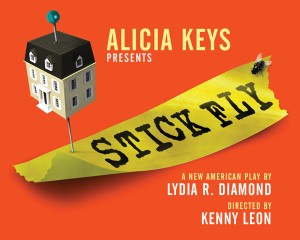Announcing that Mark Thompson, Jack Welch, Jim Collins, Richard Branson and many more will be featured at Radio City Music Hall, NYC, for the Oct. 3 World Business Forum. You can register here.
Author Archives: Mark C Thompson
The Banjo Player: Steve Martin’s Diligence
Most of us know Steve Martin as comic, actor, and occasional author and director. His role as banjo player, however, has been one of the most informative of his career.
In his 2007 interview with Charlie Rose, Steve recounted his experience learning to play the instrument.
“I remember getting my first banjo, and reading the book saying ‘this is how you play the C chord,’ and I put my fingers down to play the C chord and I couldn’t tell the difference.”
play the C chord,’ and I put my fingers down to play the C chord and I couldn’t tell the difference.”
“But I told myself,” he continued, “just stick with this, just keep playing, and one day you’ll have been playing for 40 years, and at this point, you’ll know how to play.”
In 1960s California, the banjo was an interesting choice of instrument–there weren’t a lot of lessons being offered if any. Instead, Steve would take Earl Scruggs records and slow them down from 33 RPM to 16 RPM and then tune down the banjo to match the slower speed. He’d then tediously pick out the notes, one by one.
Later, when Steve began his stand up comedy career, he decided to make the banjo part of his routine.
“The reason I played [banjo] on stage,” he explained in an ABC interview, “is because…I thought it’s probably good to show the audience I can do something that looks hard, because this act looks like I’m just making it up.”
50 years after Steve began his attempt at playing banjo, he released his first album, “The Crow” in 2009 and it won a Grammy. He’s since been nominated for another. It’s not far off from the 40 years he’d told himself as a teenager it would take to learn how to play.
and it won a Grammy. He’s since been nominated for another. It’s not far off from the 40 years he’d told himself as a teenager it would take to learn how to play.
Steve’s memoir, Born Standing Up, defines diligence not just in terms of persistence, but also the integration of seemingly unrelated pursuits.
Steve was of course exagerrating when he projected it would take 40 years to get good at the banjo, and was obviously playing at a high-level after 5 – 10 years of taking up the instrument when he began using it in his act. But his resolution reflects a deeper truth: getting good at something is not to be taken lightly, and skill is to be developed over the course of a life.
Jack LaLanne’s Story: Would You Be Willing to Change if It Saved Your Life?
Failing an attempt at suicide at age 15, Jack LaLanne dropped out of school. He had suffered a never-ending rollercoaster of depression and illness that left him secretly hoping that his life would end. There were no antidepressants, no magic prescriptions for Jack’s condition. Suffocating migraines would send him into a panic in which he would lash out helplessly at everyone and everything. He once tried to set the family home on fire and, during another episode, he chased his older brother with a butcher knife determined to kill him.
His family did their best to help. They had moved twice at the advice of doctors first to drier, then to wetter climates, in search of an environment where the sickly teen could recover and grow. 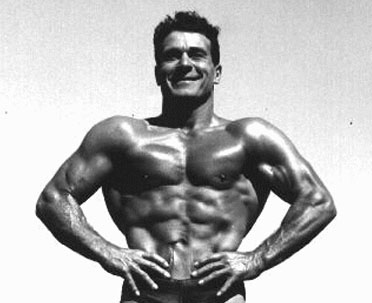
Upon the advice of a friend, his mother took young Jack down to her ladies club for a lecture on improving one’s health naturally. Embarrassed, he dragged his feet. By the time they arrived, though, the meeting hall was full. Jack felt relieved until the lecturer, nutritionist Paul Bragg, set two chairs out on the stage and said, “We don’t turn anyone away.”
Bragg focused on the trembling teen. “Do you want people to stop bullying you? Do you want women to admire you?” Jack was captivated, and that message would become his life’s mission.
But Bragg recommended something that medical doctors at the time warned would cause heart attacks, hemorrhoids and even impotence: it was called daily exercise.
that medical doctors at the time warned would cause heart attacks, hemorrhoids and even impotence: it was called daily exercise.
This was 1929, and the teen chose to change his life despite the warnings. As America’s Great Depression deepened, it was perhaps reckless to start a business that conventional wisdom cautioned against. He would have to invent news ways of eating and new types of equipment that would make his exercise regimen possible. It was the beginning of a seven-decade career that, regardless of Jack’s passing last year, is still going strong today. Jack LaLanne became the father of a revolution in health.
 Yet when I met him, LaLanne still claimed to hate exercise! He said he couldn’t “wait until it [was] over every day,” but knew that he’d be “miserable if [he] didn’t do it,” he said. So why did he?
Yet when I met him, LaLanne still claimed to hate exercise! He said he couldn’t “wait until it [was] over every day,” but knew that he’d be “miserable if [he] didn’t do it,” he said. So why did he?
“Would you be willing to change,” the feisty 92-year-old shouted back, “if it saved your life?”
LaLanne pursued a path that ultimately revolutionized the health care and fitness world, but it didn’t start out as a revolution: it was all birthed from one, small lecture at his mother’s ladies club. Yet, he followed the advice and regimen and doubled not only his personal value–losing weight, feeling empowered and saving himself from suicide and depression–but he eventually improved the lives of millions of others.
Jack LaLanne decided to take something that increased his value and relentlessly encourage and show others the way to make it happen.
Listen to my interview with him here:
Using Your Passion to Double Action: Bono and Gates
No stranger to controversy, Paul Hewson built two of his passions into dual careers that have brought him fame, a sort of infamy, and created enormous value for those the world over.

I have to admit I didn’t recognize him nor know much about his music or his social activism when I ran into him accidentally in New York. I was standing at a reception, when this sort of shaggy, Irish-sounding bloke burst into the conversation wearing the kind of see-through sunglasses rock star wannabes often wear. After a few moments, though, it was clear that the joke was on me: he was Bono, as Paul Hewson is affectionately known, erupting with infectious enthusiasm and playful banter that would steal the show. As it turned out, the new century’s odd couple of philanthropic activism, Bono and Bill Gates, were there to announce their latest HIV initiative.
The Paranoid Survive, But the Passionate Prosper
Three decades ago, Bono saw an ad to form a band that, after the usual artistic fits and starts, eventually exploded to become the enormously popular U2. In both his music and his social activism, Bono takes on the biggest of issues: love and hate, life and death, power and politics.
Today, he faces criticism about whether his main love, music, and his second passion, social activism, might both be losing their progressive edginess in favor of self-promotion or political correctness as deference to his growing circle of rich, famous and powerful friends.
“Aren’t you sleeping with the enemy?” an anonymous bystander took a cheap shot as we walked quickly down the hall, rushing to another meeting.
The jab was in reference Bono’s high profile hobnobbing with the suits, crashing on Bill Gates’ couch or holding court with Presidents Bush and Clinton.

Bono ignored the provocation and then attacked as if he had started the argument: “Do you really want these ideas to die?” he snapped. “It’s an everyday holocaust. Twenty-five million Africans who are HIV-positive will leave behind 40 million AIDS orphans by the end of the decade.”
He stopped for a moment in the hallway. His temperature dropped as he sighed, turning from adversary to recruiter.
“It’s time we all got a bloody grip on this, don’t you think? It’s pathetic, gutless really. It doesn’t have to be this way. We can do something about this.”
Bono, along with his pals, Bill and Melinda Gates, were named Time Magazine’s Persons of the Year in 2005 for their unlikely but extraordinary alliance in rallying otherwise adversarial economic and political powers to have an enormous value impact on global social issues.
Every Passion Counts
Rich people have been giving piles of money away to good causes for generations, but it’s obvious when you sit down with Gates and Bono that they’re passionate about using their resources and positions as public figures to double the value of traditional philanthropy.
“I have no interest in cocktail parties,” Bill Gates will tell you.

Whether sitting on the mud floor of a hut in Africa, or sipping champagne with the rich and famous in Washington D.C., Gates and Bono have learned how to work the system in government and business to get tangible results.
“We let our own pathetic excuses about how it’s ‘difficult’ [to make social change really happen] justify our own inaction,” Bono told the World Association of Reporters, entreating the media and public to get with the program. “Be honest: we have the science, the technology, and the wealth. What we don’t have is the will, and that’s not a reason that history will accept.”
Gates and Bono have been relentless in doing whatever has mattered to them in their lives, but have also always found ways disrupt the standard approach in order to build new and world-changing value. This time, they’re on a historic mission that’s a far cry from their beginnings: make change in parts of the world where things haven’t gotten better for generations.
For those who are committed to creating and doubling their value, there is not just one thing to do with their life. Every passion counts.
Opening of Stick Fly
Musical theater (and specifically Broadway) has always been one of my biggest passions, and now I’m taking part in it from the other side: as a producer.
My first venture is Stick Fly, co-produced by the amazing Alicia Keys. As Broadway.com summarizes, the story follows the LeVays, an affluent African American family who come together to spend a weekend at their stately Martha’s Vineyard mansion. The adult sons, aspiring novelist Kent and golden boy plastic surgeon Flip, have each brought their respective ladies (one black and one white) to meet the parents. Food, drink and Trivial Pursuit tangle with class, race and identity politics in this contemporary comedy of manners.
It opens this Thursday. And if you’re in NYC in the coming months, come check it out!
Paper Route to Computer Mogul: Michael Dell’s Audacious Accountability
Here’s a common problem: we love to keep score, but only as long as we’re winning! When we’re not – well, we don’t really want anyone to see the report card. But in order to double your value and make change happen, we need to shift our mindset.
As Dell founder Michael Dell says, “We spend a great deal of time and energy in setting the right goals and finding the right ways to measure them.”
Big or small, Dell scrutinizes relevant details of what they do like crime scene investigators, “to see what makes a difference to customers.”
Dell pays close attention to the evidence and refuses to be misled by “the things that we think are great because people ought to like it.”
I chatted with Dell when we were at Davos some years ago, and as we walked through the slippery Swiss snow in hiking boots and business suits, he told me about a time when he, as a teen, struggled with his paper route. It was “going nowhere” as a money-making venture until he noticed that people tend to buy a lot of new things – like newspaper subscriptions – when they have major changes in their lives – like moving into a new community, changing homes, having kids, getting married, etc.
This observation yielded a breakthrough idea: focus on life events and changes among the customers he served. He tracked that data and fulfilled their unique needs at various stages of their lives.
Whereas most kids would’ve viewed the job as a way to earn pocket money by tossing papers onto lawns, Dell completely doubled the value of his venture. Not only did it change the nature of his paper route, generating $18,000 to buy a BMW in high school when his peers were still asking for allowance money, but this early observation in mapping customer data would give him insight into buying habits for the computer business he’d go on to found.
buy a BMW in high school when his peers were still asking for allowance money, but this early observation in mapping customer data would give him insight into buying habits for the computer business he’d go on to found.
“I would characterize the start up of the company as a series of experiments,” Dell said, pointing to the white board where he had a list of noble ideas that missed the mark. “Most of these failed, but none of them were large enough disasters to destroy the company.”
Most people don’t do well with ambiguity, believing it the enemy of audacity and innovation. It strikes fear in our heart and puts doubt in our heads. When was the last time you were able to sell an idea to your boss, your partner or your team without an exact battle plan for getting it done? Did they not want a detailed process for getting there, and certainty about the outcome?
It’s human nature to crave certainty and repudiate ideas that don’t have guarantees. And yet, very few things do. Great ideas and great careers don’t have it all figured out before they launch.
This was exactly the case for Michael Dell and his desire to create and double value in the computer industry. His plan was clear and confident, with a paucity of detail or certainty. But that is not how it looks when you read about Dell. The press gushes over him as if he found a chest hidden in his freshman dorm room containing the treasure map for his life.
If you’ve met Michael, however, he is a self-effacing, down-to-earth guy who reassures you that he had no precise plan. He just dared to go  where no one had gone before. The compelling nature of the goal, not the plan, is what launches entrepreneurs.
where no one had gone before. The compelling nature of the goal, not the plan, is what launches entrepreneurs.
Dell realized he could create more value in the computer industry by bypassing retail stores and selling his computers to consumers direct by mail. He got almost instant validation, netting a cool $80,000 in his first year. Not surprisingly, he opted for selling computer equipment out of his bathtub at University of Texas, Austin, instead of getting a college degree.
In the time he would have taken to earn a sheepskin, he became the youngest person to take a company public on the stock market. But within a year, he faced disaster when his warehouses overflowed with excess inventory of electronic components. The enthusiasts’ package of computer technology he thought would sell bombed with consumers.
While Dell is known for his big idea about bypassing traditional retail stores, he desperately needed to clear inventory. It very nearly killed the company until he decided to distribute things through CompUSA and Best Buy stores for awhile, temporarily violating his original plan to sell only by mail.
No sooner did he get things back on track when the firm hit the wall again. Dell struggled with losses in a business that would prosper later – laptops – and he also faced costly mistakes in Europe. He was forced to cancel a second public offering to the stock market.
Clawing his way out of this  second big slump, Upside Magazine named Dell turnaround CEO of the year, and he delivered a line that has become legendary: “I hope I don’t ever win that award again!”
second big slump, Upside Magazine named Dell turnaround CEO of the year, and he delivered a line that has become legendary: “I hope I don’t ever win that award again!”
Responsible Chutzpah or Audacious Accountability
Like most people who double value in major ways, what Dell had going for him on this roller coaster ride was an odd mixture of Accountability AND Audacity. It’s tough to find the right word for this leadership quality. The Yiddish dictionary gets closer: We’re talking about a responsible form of chutzpah – the non-conformist gutsy audacity to create something despite all odds, for better or for worse. In this case responsible chutzpah leaves out the completely self-absorbed arrogance associated with the word.
Leo Rosten in The Joys of Yiddish defines chutzpah as “gall, brazen nerve, effrontery, incredible ‘guts,’ presumption plus arrogance such as no other word and no other language can do justice to. ”
The difference here is that those who continue to create and build value long-term are accountable – they are people who deliver for themselves and the outside world at the same time.
Accountability means: “to stand and be counted, as a part, a cause, an agent, or a source of an event or set of circumstances.” Audacious Accountability means you consider your life from the point of view that how it goes and what happens is up to you. Don’t worry; this is not an infomercial for so-called human potential movement psychobabble. This is one of best lessons from human history: You may or may not be to blame for what happens to you, but either way you are responsible for doing something about it.
Those who make big things happen time and time again don’t claim to feel in total control, but they do have the audacity to embrace the idea that they alone (or with the help of a Creator) are building their life for a reason, rather than life being something that happens to them while they’re making other plans.
Is it a Passion? 6 Steps to Find Out
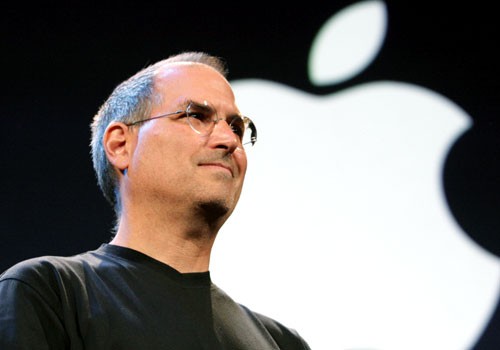

 e probably putting in more effort than you’re charging for and you might even volunteer to do it.
e probably putting in more effort than you’re charging for and you might even volunteer to do it.DOUBLE YOUR VALUE…TO CUSTOMERS & YOUR BOSS.
DOUBLE YOUR VALUE…TO CUSTOMERS & YOUR BOSS.
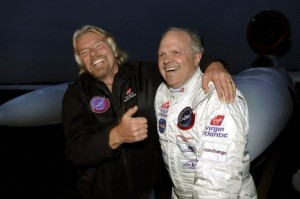 creativity, adventure and necessity finally outweigh fear, complacency, poverty, and outside criticism.”
creativity, adventure and necessity finally outweigh fear, complacency, poverty, and outside criticism.”Early in his career, Steve was disengaged from his work and life. He was a frustrated wage-slave but he broke free and built a new life and his own successful financial services business. He went on to attempt world titles in five sports, failing plenty of times; but ultimately he set 116 records—more than any other human being in history!
What you may not know is Steve and many of the world’s most successful people have felt overwhelmed in their lives—they’ve all experienced great frustration or fear of the risks necessary to do anything that really matters.
There is a cure: Taking Action. You will Double Your Value (or more!) to the people who matter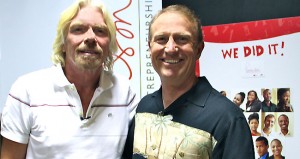 to you when You Ask What Can Do to make a difference. Most people want to make a meaningful impact, but get stuck along the way. In this book, Mark, Bonita, and Marshall reveal powerful strategies from their latest research that will help you make it happen. Read it and then go try it.
to you when You Ask What Can Do to make a difference. Most people want to make a meaningful impact, but get stuck along the way. In this book, Mark, Bonita, and Marshall reveal powerful strategies from their latest research that will help you make it happen. Read it and then go try it.
Balance is Bull
In the midst of an interview with Never Eat Alone author Keith Ferrazzi, I asked what he had to say about life balance. Ferrazzi didn’t hold back: “Balance is bull!” he asserted. “Wrong answer!” the voice in your head is likely to reply.

So, what does research have to say on the matter? Basically, the notion that balance should be defined by a time-allocated pie chart, giving equal proportions to ‘family’, ‘self’, ‘work’, etc. (carrying the Good Housekeeping seal of approval) –doesn’t work– at least not for those of the world’s most successful people we’ve interviewed.
Using the typical cultural definition of balance, The Dalai Lama wouldn’t have a balanced life, nor would Nelson Mandela, nor Bono. 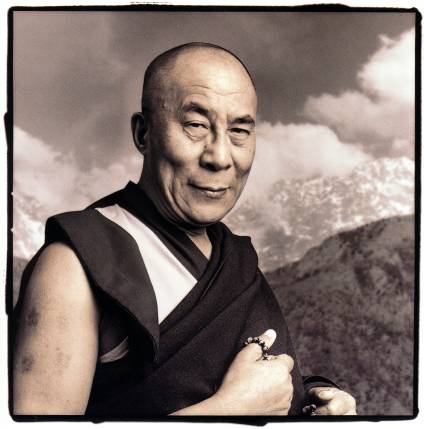 Mother Teresa didn’t have a balanced life – and we could go on and on, but you get the idea. The remarkable people we met, many of whom live a life that’s a gift to the world, never raised balance as an issue and it’s because they were all too busy doing what mattered to them.
Mother Teresa didn’t have a balanced life – and we could go on and on, but you get the idea. The remarkable people we met, many of whom live a life that’s a gift to the world, never raised balance as an issue and it’s because they were all too busy doing what mattered to them.

If you’re desperately feeling a need for balance, it may have nothing to do with balance per se, as much as it means that “you’re not getting access to a huge chunk of time to do the things that really matter to you,” said Gordon Moore, a founder of Intel who’s best known for Moore’s Law. Your fixation on balance may actually mean your pie chart needs you to set work at 80%, or kids at 80%, or fishing at 80%–but rarely in comfortable or equal proportions. It might mean you need to create time to be a stay-at-home parent, or refurbishing model Ts without the family around, exploring medieval castles with your pals, or painting homes for Habitat for Humanity.
It might mean you need to create time to be a stay-at-home parent, or refurbishing model Ts without the family around, exploring medieval castles with your pals, or painting homes for Habitat for Humanity.
The point is to determine if it’s a neglected passion that’s driving your hunger rather than a need for balance. When you feel the need for more balance, ask yourself: if you had it, what would you be doing with you time that you’re not doing now? Chances are it’s a sidelined passion that’s making the request. Pay attention–what you probably need is to in fact balance your portfolio of passions. Also be aware that what you’ll actually experience as balance is going to change with the passage of time, and may never look like balance to any other soul.
By shifting your notion of balance, and re-structuring your energy toward your portfolio of passions, you’ll end up doubling your value in the areas you feel most strongly about, driving you closer to the successful, “balanced” life you’ve been yearning for.
Double Excellence in Education
As a California native, I was lucky enough to go to and graduate from several of its wonderful public universities (as was my wife, Bonita).
That’s why it’s especially upsetting to hear about the massive cuts to California’s public educations, and even more frustrating to learn that spending on prisons passed spending on universities in 2004 (per an article from the September issue of The Economist).

The dictionary defines the word invest as, “to use, give, or devote (time, talent, etc.), as for a purpose or to achieve something”–the same mission behind education. California has long been a state of entrepreneurs, incredible innovation and a once world-class higher educations system, but by refusing to invest in its future and instead putting money and energy into criminals and the prison system, the state is missing a huge opportunity to multiply its value.

We need to invest–be it monetary or otherwise–in people, places, things, that will create and breed value and ultimately serve us all for decades to come.


